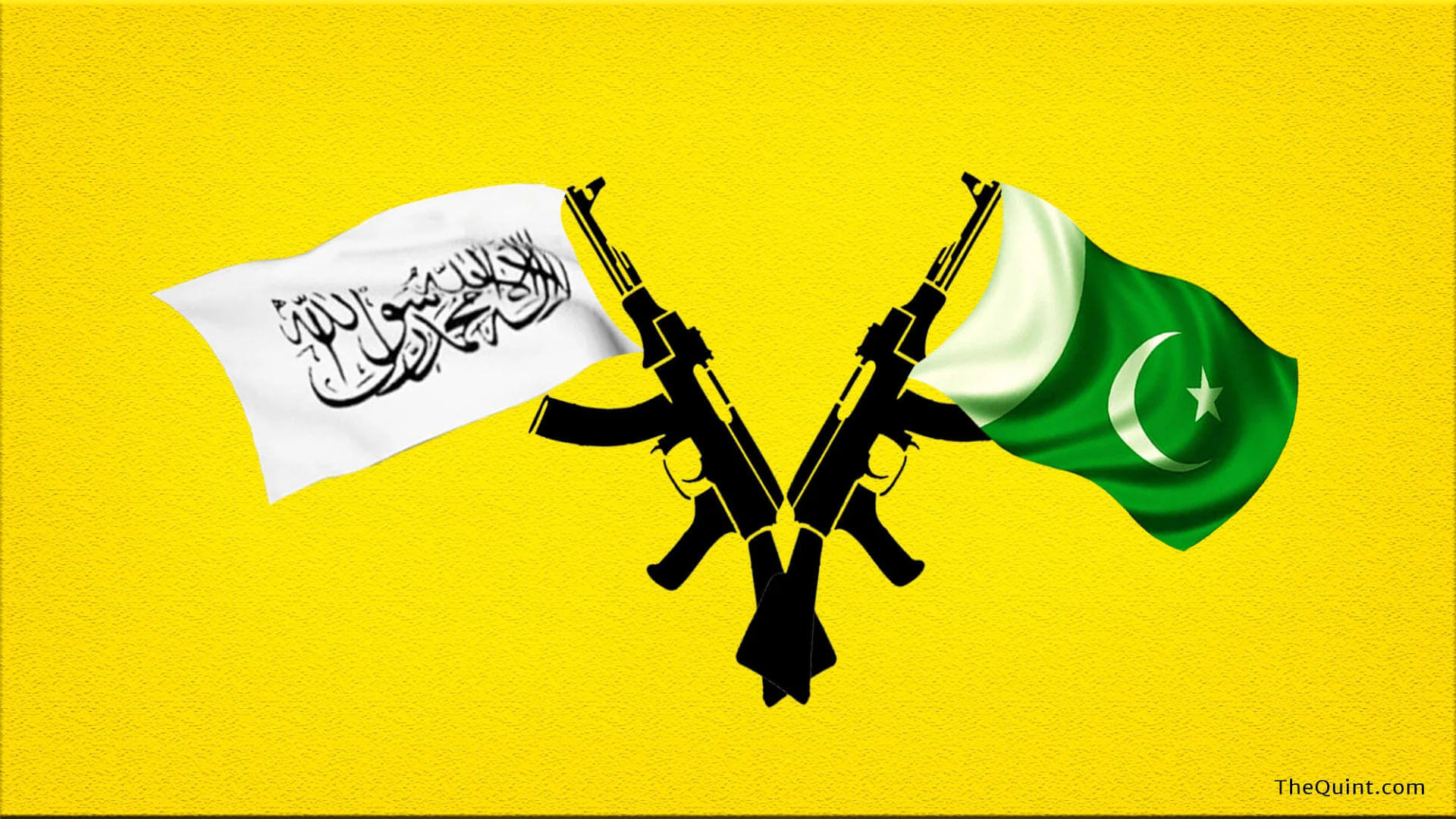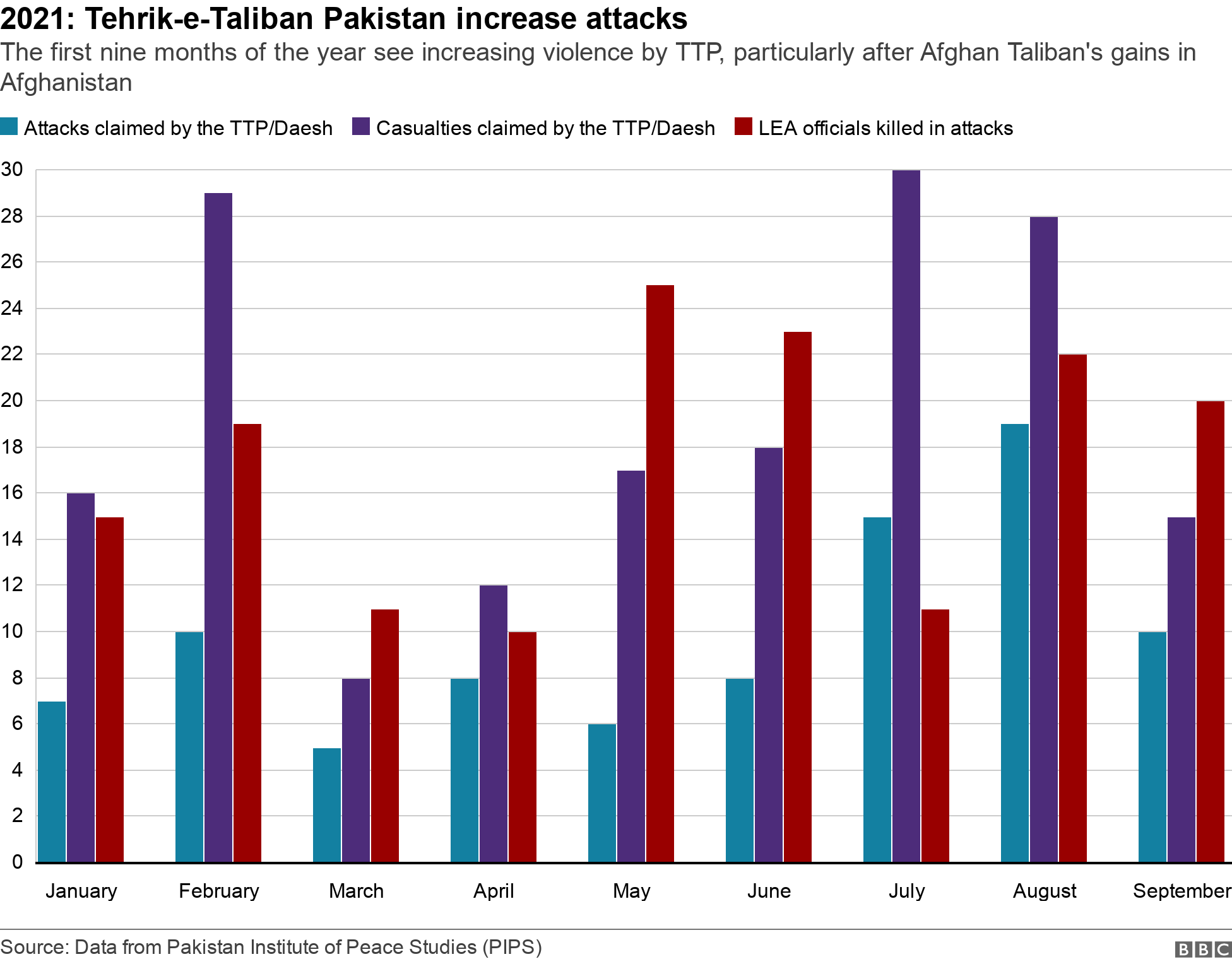TTP Rebooted
April 24, 2022 | Expert Insights

Taking a leaf from the CIA's playbook, the Pakistani military recently used drones to target the Tehreek-e-Taliban Pakistan (TTP). There was nothing new in the TTP being attacked, considering that the ceasefire sponsored by the Afghan Taliban has long lapsed, except that the targeting was done in sovereign Afghan territory across the Durand Line! Unsurprisingly, a visibly angered Taliban government issued dire warnings of suitable ‘retaliation.’.
Amidst security circles in Pakistan, this has given rise to apprehension that the so-called 'strategic depth' promised by an Islamabad sponsored regime in Kabul seems to be unravelling, creating a fresh load of problems for the hard-pressed Pakistani establishment.
Background
The threads which tie the Pakistani military establishment to the Taliban (which some say are their creation) go back into history. After the loss of its eastern province in 1971, a truncated Pakistan felt its territorial integrity was in peril. This was further enhanced by the warlike Pashtun majority in Khyber Pakhtunkhwa and the restive Balochs, who have never reconciled to the sovereignty of a Punjab dominated Pakistani Federation. To water down Pashtun nationalism and angst, made even more dangerous by the influx of millions of Afghan refugees fleeing from Soviet occupation forces, hundreds of religious schools (madrassas) were opened with generous contributions from rich Gulf countries. Fed on a diet of extreme Islamic teachings, these Madarsas were the wombs from which an Army of ‘Talibs’ emerged to fight the Soviets in the killing fields of Afghanistan. All these functioned under the benign protection of the Pakistani military establishment.
The Durand Line, which forms the border between Afghanistan and Pakistan, has never been accepted formally by Afghanistan, irrespective of the regime in power, despite all efforts from Islamabad to demarcate the border. Islamabad fears the creation of an independent state of "Pashtunistan", which happens to be the official objective of TTP. A complex triangular interplay is thus being created, that of Pakistan’s abhorrence for TTP, its outright support and patronage of the Afghan Taliban and the tacit historical mutualities between the two Talib groups.

Analysis
When the U.S. Army withdrew from Kabul, the Prime Minister of Pakistan remarked that "Afghans have broken the shackles of slavery”, implying thereby their support for the victorious Taliban regime. Apart from aiding and catalysing the formation of the Taliban, Islamabad has two-fold interests in militarily and logistically supporting the Taliban.
The first one stems from their border disputes. Islamabad has spent a huge sum of money on its failed attempts at border demarcation due to the lack of cooperation from Kabul. They believe that the Taliban government at the helm will enable the resolution of these long-standing disputes.
The second has its roots in Islamabad's most crucial rival- India. The previous U.S.-backed Ghani government had a strong affinity with India. The past decade has seen huge investments and infrastructure development from Delhi's coffers. Islamabad feared the growing footprint of its rival in an area it considers its own turf. By supporting the Taliban’s return to Kabul, Pakistan sought to diminish Delhi’s influence, economic and geopolitical and reclaim the 'strategic depth'.
The Afghan Taliban and TTP, on the other hand, are ideological brothers. Both are rooted in Islamic fundamentalism, the Deobandi school of Islam and are predominantly Pashtun in their ethnicity. Just like the Taliban waged a jihad to establish an Islamic state in Afghanistan, the TTP’s one-point agenda is to overthrow the Pakistani establishment and replace it with one that is entirely Islamic in form and principles. It has taken the route of an armed insurgency to achieve this stated goal, irrespective of the human and material costs involved.
While the Taliban had sought a safe haven in Pakistan, today, it rules a country and has the upper hand. This turning of tables could result in Islamabad losing its earlier influence over the outfit. A confident and resurgent Taliban can garner support from the larger global community, especially from countries like Iran, Russia and China. Earlier, Pakistan targeted the TTP with the support of the American army in Afghanistan; today, it needs the Taliban for the same purpose. This is the crux of Islamabad’s dilemma. Taliban's unambiguous warning of retaliation is an effort to rid itself of the shackles of being labelled as a Pakistani proxy. However, this in no way implies that both erstwhile partners are now estranged; as in all other matters, they continue to cooperate closely.
Pakistan has been at the forefront of drumming up support for the starving Afghan population and the release of its frozen reserves. Hosting a special session of the Organisation of Islamic Countries by Pakistan, which proved quite successful in garnering financial support, has reinforced their relationship. However, the border demarcation and the TTP remain intractable issues. Under its code of honour called 'Pashtunwali', protection of a guest is something all Afghanis are duty-bound to observe. They protected Osama bin Laden till the final destruction of their regime. The same honour code applies to TTP. As regards the Durand Line, all Pashtuns, irrespective of their political leanings, remain firm on Pashtun unification, which in their opinion, is being hindered by the Durand line.
Assessment
- With the Taliban gaining power in Afghanistan, the dominance of Islamabad in the internal matters of the country is bound to take a hit. While they may still be allies, the Taliban has diplomatic ambitions which, by virtue of their position, do not require Pakistani assistance anymore. As bitter a pill as it may be for Islamabad to swallow, the sooner they come to terms with the new reality, the better they will be equipped to protect their own interests.
- The duality of Pakistan’s support for the two regional brands of a similar movement has time and again back-fired. The Taliban has no interest in wasting its resources over TTP or allowing the breach of its territory for the same. Pakistan must reset its methods in accordance with this change in the Afghan reality.








Comments